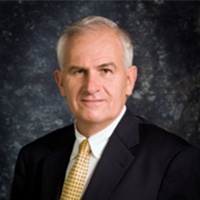Bayard Misdemeanor Lawyer, West Virginia
Not enough matches for Bayard Misdemeanor lawyer.
Below are all Bayard Criminal lawyers.
Sean Thomas Logue
✓ VERIFIEDCriminal, DUI-DWI, Traffic, Felony
Serving Clients in the Greater Pittsburgh Area and West Virginia
Sean Logue is a diligent attorney who excels at representing people who have been charged with criminal and traffic offenses in Pennsylvania. He const... (more)
William C. Brewer
✓ VERIFIEDDivorce & Family Law, Medical Malpractice, Litigation, Criminal, Accident & Injury
Some Trial Lawyers Say They Have Experience. We Actually Do.
Legal challenges require top-level experience and skill. That’s why individuals and businesses in West Virginia (WV) turn to attorney William C. Bre... (more)
J. Michael Benninger
Criminal, Federal Trial Practice, Mental Health, Legal Malpractice
Status: In Good Standing
Trena Williams
DUI-DWI, Domestic Violence & Neglect, Mediation, Social Security -- Disability
Status: In Good Standing
FREE CONSULTATION
CONTACTWesley W. Metheney
Mass Torts, Chemical & Cosmetics, Criminal, Bed Bug, Mesothelioma
Status: In Good Standing
Andrew Neil Frye
Juvenile Law, Employment, Divorce, Criminal
Status: In Good Standing Licensed: 20 Years
J. Brandon Shumaker
Criminal, Accident & Injury, Workers' Compensation, Medical Malpractice
Status: In Good Standing Licensed: 14 Years
Rebecca Louise Miller
Defect and Lemon Law, Employee Rights, Child Custody, Criminal
Status: In Good Standing Licensed: 10 Years
Aaron Paul Yoho
Immigration, Child Custody, DUI-DWI, Contract, Divorce
Status: In Good Standing Licensed: 21 Years



